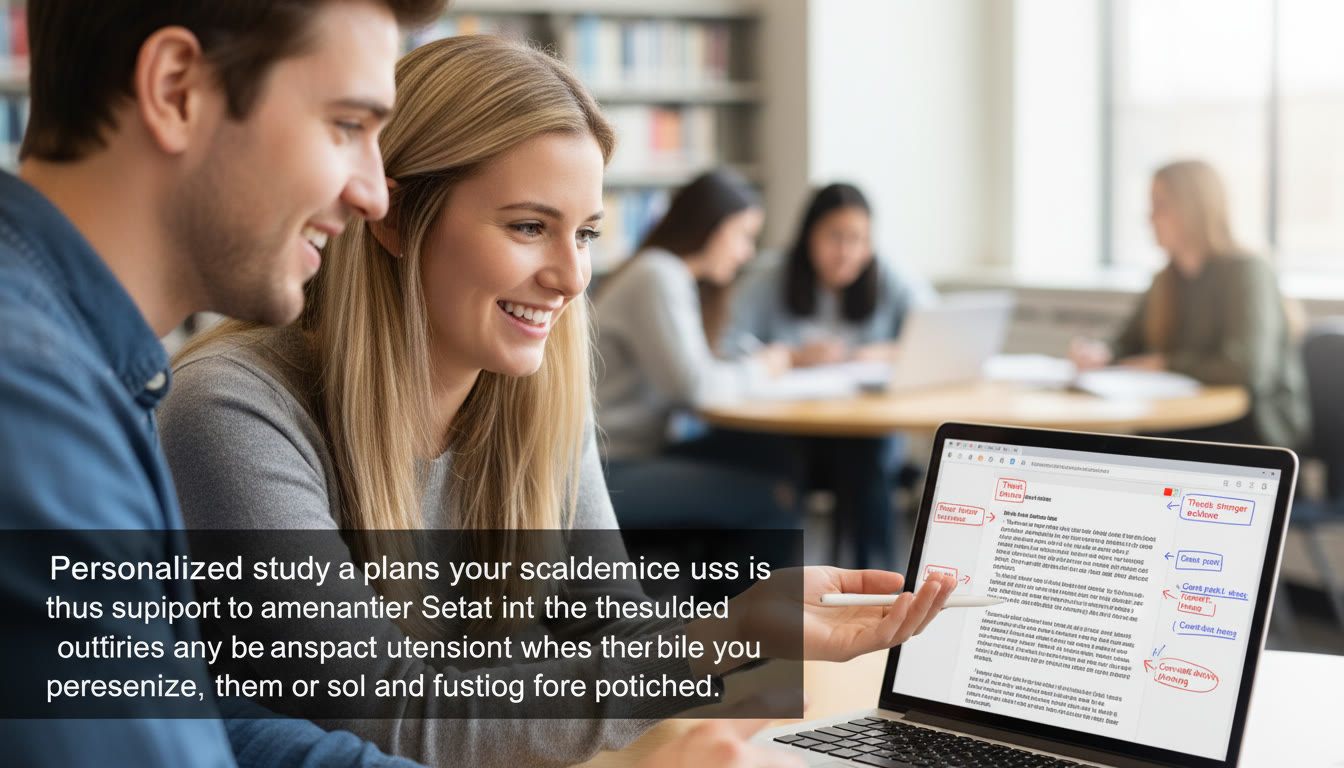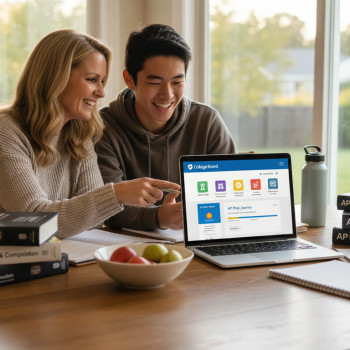Why Transitioning from CBSE Second Language to AP Language Makes Sense
Moving from CBSE second language classes to an AP Language course is less of a leap and more of a powerful step up — especially when you focus on interpersonal communication, critical reading, and persuasive writing. For many students, CBSE second-language studies establish grammar, vocabulary and cultural sensitivity. AP Language builds on those foundations by asking students to analyze real-world texts, craft arguments with nuance, and communicate persuasively to varied audiences.

What Parents and Students Often Get Wrong
One common misconception is that AP Language is only about exam tricks. It’s not. Yes, test techniques matter. But at its heart AP Language rewards habits that also make students better communicators in school, college and life: active listening, audience awareness, clarity of thought, and adaptability. These are precisely the interpersonal skills CBSE second-language students begin cultivating — if guided correctly.
Misconception: It’s All Grammar and Rote Exercises
CBSE courses sometimes emphasize grammar and translation. AP Language shifts the emphasis toward rhetorical situation — who is speaking, to whom, why, and with what effect. That means students who only memorize rules will struggle; those who practice using language to achieve goals will thrive.
Misconception: Interpersonal Skills Aren’t Testable
They are. When a student writes a persuasive essay or composes a sophisticated synthesis, the grader rewards evidence of audience awareness, empathetic consideration of counterarguments, and nuanced tone — all interpersonal skills in action.
How CBSE Second Language Skills Map to AP Language Competencies
Below is a clear mapping showing how everyday CBSE second-language tasks translate into AP-level strengths. Use this as a checklist when designing study plans.
| CBSE Practice | AP Language Competency | How to Level Up |
|---|---|---|
| Reading short stories and poems | Close reading and textual analysis | Annotate for purpose, tone, and rhetorical devices; ask “Why did the author choose this word?” |
| Translation and comprehension exercises | Paraphrase and synthesis | Practice summarizing paragraphs in one sentence and integrating multiple viewpoints into a short synthesis paragraph |
| Dialogues and roleplays | Audience awareness and rhetorical stance | Rework a dialogue as a persuasive speech and note changes in tone and word choice |
| Letter writing and compositions | Argument development and organization | Outline thesis, reasons, and evidence before writing; practice varied introductions and conclusions |
Five Practical Strategies to Build Interpersonal Skills for AP Language
Below are action-oriented strategies students (and their parents) can use immediately. Each strategy connects to the AP scoring rubric while remaining grounded in everyday classroom practice.
1. Swap Roles: Speaker, Listener, and Analyst
In a study group, rotate roles. One student presents an argument; another listens and takes notes focused on “audience reaction”; the third analyzes rhetorical choices. This simple rotation trains students to think beyond content — to see how delivery, word choice, and structure shape understanding.
2. Daily Micro-Writing (150–250 words)
Short, frequent writing builds clarity and speed. Prompt ideas: respond to a news headline, defend an unpopular opinion, summarize a single paragraph. Micro-writing forces students to choose words carefully and consider the audience immediately — skills rewarded on AP essays.
3. Annotate for Interaction, Not Just Meaning
Teach annotation that answers social questions: Who is the author addressing? What does the author assume the audience knows? How does the author try to persuade? These annotations transform passive reading into an interactive dialogue with the text.
4. Practice Speaking Persuasively
AP Language favors writers who can think on their feet. Organize short debates or “two-minute pitches” on everyday topics. Emphasize structure: claim, reason, example, and tie-back to audience. Speaking practice accelerates the ability to craft voice and tone on paper.
5. Use Comparative Tasks to Build Flexibility
Assign two texts on the same topic — one formal, one conversational — and ask students to rewrite a paragraph from one into the other’s voice. This builds adaptability and helps students recognize rhetorical choices when they appear in AP prompts.
Designing a 12-Week Study Plan That Builds Both Language and Interpersonal Fluency
This sample plan is tailored for a student transitioning from CBSE second language to AP Language. It balances reading, writing, speaking and reflective practice. Parents can use it to monitor progress; students can follow it weekly.
| Weeks | Focus | Weekly Targets |
|---|---|---|
| 1–2 | Close reading & annotation | 4 short texts; 5 micro-writes; 2 speaking drills |
| 3–4 | Argument structure | Practice thesis outlines; 2 full essays; peer review sessions |
| 5–6 | Synthesis & research | Gather 6 short sources; write 1 synthesis; summarizing drills |
| 7–8 | Tone and audience | Rewrite tasks in different voices; 4 oral presentations |
| 9–10 | Timed practice | 3 timed essays; review scoring rubric; error log maintenance |
| 11–12 | Polish & reflection | 1 full practice exam; 4 tutor sessions or targeted reviews; final portfolio |
How to Turn Classroom Skills into Real Interpersonal Strengths
Interpersonal skills are visible when students work with peers, parents, and teachers. Here are practical habits that turn language work into stronger relationships and leadership skills.
- Active Listening Logs: After group work, each student writes a one-paragraph summary of what a partner tried to communicate. This rewards empathetic listening.
- Feedback Sandwich: Teach students to give praise, a constructive suggestion, then encouragement — a format that keeps collaboration positive and productive.
- Audience Profile Exercise: Before writing, create a 3-line audience profile (age, concerns, likely beliefs) — this habit sharpens rhetorical choices.
- Error Log Shared with Tutors or Parents: Track recurring weaknesses and review them weekly with a tutor or parent for accountability and targeted gains.
Assessment and Growth: What to Measure Weekly
Not all progress is visible in grades. Track small measurable indicators that reflect interpersonal development as much as raw language skill.
- Clarity Score (self-rated 1–5 after each write-up): Could a classmate summarize your main point correctly?
- Audience Fit (peer-rated): Did the tone match the intended audience? Rate 1–5.
- Responsiveness (in discussions): Number of times the student respectfully references another student’s point.
- Timely Revision (days to revise after feedback): Faster revision shows adaptability.
Sample Weekly Reflection Template
Reflection turns practice into learning. Here’s a compact weekly template students can use (or parents can help them use):
- What I wrote this week (3–4 items)
- One thing I learned about my audience
- One rhetorical device I tried and why
- One piece of feedback I received and how I used it
- One interpersonal skill I practiced (listening, clarifying, summarizing)
How Personalized Tutoring Accelerates the Transition
Students often plateau because study plans are generic. Personalized tutoring changes that. With 1-on-1 guidance, tutors can diagnose where a student’s CBSE background is strong (vocabulary, grammar) and where they need tailored practice (synthesis, rhetorical analysis). A tutor can also model how interpersonal skills appear in writing — for example, how to anticipate counterarguments or shift tone for a different audience.
If you’re considering extra help, prioritize tutors who offer tailored study plans, regular feedback loops, and measurable milestones. Sparkl’s personalized tutoring model — including expert tutors, 1-on-1 guidance, and AI-driven insights to pinpoint gaps — fits this approach by adapting practice to each student’s history and goals.
Real-World Examples: Classroom Tasks with AP-Bound Outcomes
Here are concrete activities that teachers and parents can use immediately. Each maps a familiar CBSE task to an AP-style outcome.
- CBSE Task: Write a letter of complaint. AP Outcome: Convert the same points into a persuasive op-ed that acknowledges objections and cites two brief external sources.
- CBSE Task: Translate a paragraph. AP Outcome: Paraphrase the paragraph and then produce a counterargument from an alternate viewpoint.
- CBSE Task: Read a story and answer comprehension questions. AP Outcome: Annotate the story for rhetorical strategies and write a 250-word analysis focusing on narrator perspective.
Parents’ Guide: How to Support Without Taking Over
Parents play a crucial role, but the goal is to support growth, not do the work. Here are practical ways parents can help:
- Ask Open Questions: Instead of correcting, ask: “Who is the audience here? What would change if you wrote for your principal instead of your friend?”
- Schedule Short Check-Ins: A 15-minute weekly meeting to review the reflection template keeps momentum without pressure.
- Encourage Peer Review: Facilitate a buddy system that mimics real feedback loops students will face in college and work.
- Invest in Targeted Help: If progress stalls, consider a few sessions of personalized tutoring to recalibrate — especially before major exams.
Preparing for the Exam Day — More Than Test Strategies
On exam day the strongest advantage isn’t just technical familiarity with prompts — it’s the confidence to speak to an audience through writing. That confidence comes from practice: receiving feedback, revising drafts, and practicing audience-focused speaking.
- Do timed practice under realistic conditions, then use a calm debrief: what worked, what felt rushed?
- Keep an “evidence bank” of short quotes and facts collected from readings that can be adapted quickly to many prompts.
- Practice beginning each essay with a 1–2 sentence audience profile to clarify tone and strategy before writing.
Measuring Long-Term Success: Beyond the Score
AP scores matter — but long-term success shows up in the ability to lead discussions, write clearly under pressure, and synthesize complex viewpoints. These are skills that carry into university seminars, internships, and careers. When you measure growth in these areas you’ll see the real payoff of connecting CBSE foundations to AP mastery.
Indicators of Durable Growth
- Improved ability to summarize peer contributions in class discussions.
- Increased willingness to revise instead of defending first drafts.
- Faster and clearer responses to unexpected prompts in timed settings.
- Greater empathy in argumentation — acknowledging and rebutting opposing views respectfully.
Final Thoughts: A Journey, Not a Sprint
Transitioning from CBSE second language study to AP Language is a powerful opportunity to deepen both linguistic skill and interpersonal effectiveness. The best approach is steady, reflective practice: short daily writing, role-rotated discussions, focused annotation, and periodic mentoring. When learning is personalized — whether through thoughtful teachers, attentive parents, or targeted 1-on-1 tutoring — students don’t just improve test performance; they become clearer, more persuasive communicators.
If you’re looking for structured support, consider a tutor or program that offers custom study plans, regular feedback, and measurable milestones. Personalized guidance, like Sparkl’s mix of expert tutors and AI-driven insights, often helps accelerate progress by targeting the exact skills each student needs most.
Above all, remember that interpersonal skill-building is humane: it values listening as much as speaking, curiosity as much as correctness, and revision as much as speed. In the AP classroom and beyond, those are the strengths that last.

Quick Checklist: 10 Things To Start This Week
- Do one micro-write every day (150–250 words).
- Annotate one text focusing on audience and rhetorical choices.
- Swap roles in a group discussion once a week.
- Keep a two-column error log and review it weekly.
- Create an evidence bank of 10 short quotes or facts.
- Practice a two-minute persuasive pitch every other day.
- Do one timed essay every two weeks and track improvements.
- Complete the weekly reflection template consistently.
- Schedule a short 1-on-1 tutoring session to set personalized goals.
- Ask a parent or peer to assess your “audience fit” on one piece of writing.
Good luck on the journey — with steady practice, thoughtful feedback, and attention to the human side of language, students can turn their CBSE second-language foundations into AP-level mastery and lifelong interpersonal strength.
















No Comments
Leave a comment Cancel